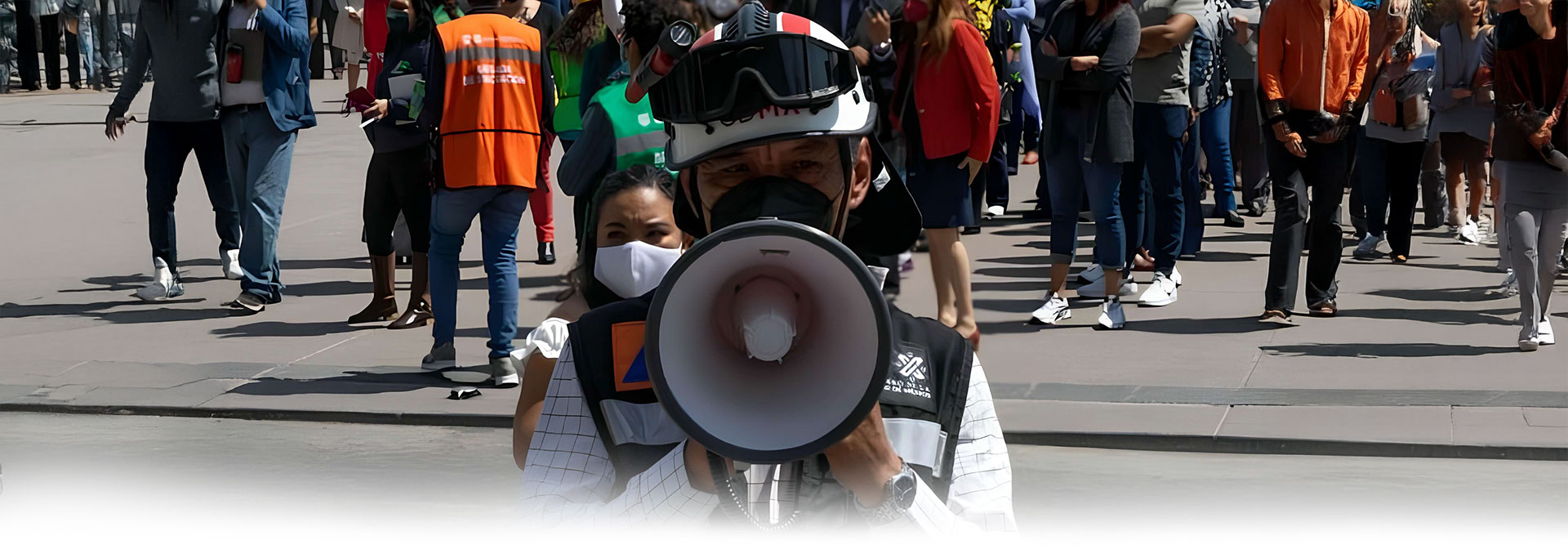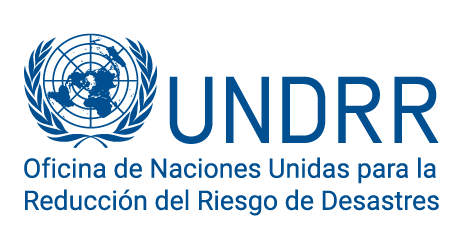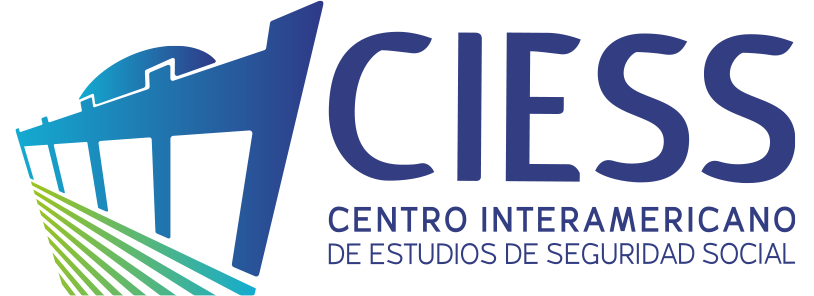
Source: https://www.capital21.cdmx.gob.mx
Disaster Risk Management:
From Experience to Cultural Transformation
Meeting Objective
To promote a dialogue space on prevention culture, as well as the exchange of experiences between public and private institutions linked to the health sector, with the purpose of strengthening the culture of prevention against anthropogenic disasters.
Featured Participants
This forum will feature the participation of national and international organizations such as the United Nations Office for Disaster Risk Reduction (UNDRR), the National Center for Disaster Prevention (CENAPRED) of Mexico, and the Emergency Operations Center (COE) of the Dominican Republic, who will address the importance of integrating risk management into health systems, fostering strategic planning, raising awareness among key stakeholders about the need for a coordinated and resilient response to emergencies caused by human action, as well as sharing experiences from nations.
 United Nations Office for Disaster Risk Reduction (UNDRR)
United Nations Office for Disaster Risk Reduction (UNDRR)
Topic: Prevention Culture and Protocols in the Americas region against anthropogenic disasters, focused on strengthening institutional and community capacities to face anthropogenic threats.
Approach: During the session, fundamental topics such as the incorporation of risk management into public policies, community education in prevention, preparedness for extreme events, and the implementation of rapid response and recovery protocols will be addressed. Furthermore, good practices and lessons learned in different countries in the region will be highlighted, with special emphasis on multi-sectoral participation, an inclusive approach, and territorial resilience. This talk seeks to foster a cultural change that promotes anticipation and planning as key tools to reduce vulnerability and protect lives, assets, and ecosystems against disasters.
 National Center for Disaster Prevention (CENAPRED) of Mexico
National Center for Disaster Prevention (CENAPRED) of Mexico
Topic: Public Policies for the Prevention of Anthropogenic Disasters in Mexico, with the objective of analyzing the regulatory frameworks, institutional strategies, and coordination mechanisms that support risk management in the country.
Approach: During the intervention, progress in integrating the preventive approach at all three levels of government will be explored, as well as in key sectors such as land use planning, civil protection, urban development, and infrastructure. Current challenges such as unplanned urbanization and risk management in vulnerable communities will also be addressed, highlighting the role of science, technology, and citizen participation in building resilient territories. This talk will offer an updated vision of the actions Mexico is promoting to transition from a reactive to a preventive approach, consolidating a culture of prevention as a central axis of its public policies.
 Emergency Operations Center (COE) of the Dominican Republic
Emergency Operations Center (COE) of the Dominican Republic
Topic: Disaster Prevention in the Dominican Republic, which will present the main strategies, protocols, and actions the country has implemented to strengthen its response capacity and reduce vulnerability to anthropogenic emergencies.
Approach: The session will address key topics such as inter-institutional coordination, early warning systems, territorial planning with a preventive approach, and community preparedness. Furthermore, recent experiences in emergency management will be shared, highlighting the importance of a preventive culture that actively involves local authorities, the private sector, and citizens. This talk seeks to promote a comprehensive vision of risk and underscore the relevance of preparedness as an essential tool to protect lives and ensure an effective response to any eventuality.
Event Program
Introduction of participants
Inter-American Center for Social Security Studies (CIESS)
Emilio Carrasco, Director
Moderator
Dominican Association of Medical Insurance Administration of Health Risks (ADIMARS)
Alba Joselin Holguin, Executive Director
Welcome remarks
Dominican Republic National Social Security Council
Escania Navarro, Planning and Development Director
Prevention culture and protocols in the American region to anthropogenic disasters
UN Office for Disaster Risk Reduction
Lorenzo Barraza, Associate Officer of Inclusion for EW4All initiative
Public policies for disaster prevention in Mexico
National Centre of Disaster Prevention in Mexico
Rosa María Rodríguez Marín, Head of the Department of Economic as Social Studies
Disaster Prevention in Dominican Republic
Dominican Republic Emergency Operations Centre
Carlos Paulino Cardenas, Technical Deputy Director and Head of Planning
Disaster prevention in Japan
Japan International Cooperation Agency in Mexico
Judith García Hernández, Programme Official of Technical Cooperation
Q&A session
Individual Speakers
Emilio Carrasco
Director
Inter-American Center for Social Security Studies (CIESS).
Escania Navarro
Planning and Development Director
National Social Security Council, Dominican Republic.
Alba Joselin Holguin
Executive Director
Dominican Association of Medical Insurance and Health Risk Administrators (ADIMARS).
Lorenzo Barraza
Associate Inclusion Officer for the EW4All Initiative
United Nations Office for Disaster Risk Reduction.
Rosa María Rodríguez Marín
Head of the Department of Economic and Social Studies
National Center for Disaster Prevention in Mexico.
Carlos Paulino Cardenas
Technical Deputy Director and Head of Planning
Dominican Republic Emergency Operations Centre
Judith García Hernández
Programme Official of Technical Cooperation
Japan International Cooperation Agency in Mexico.
